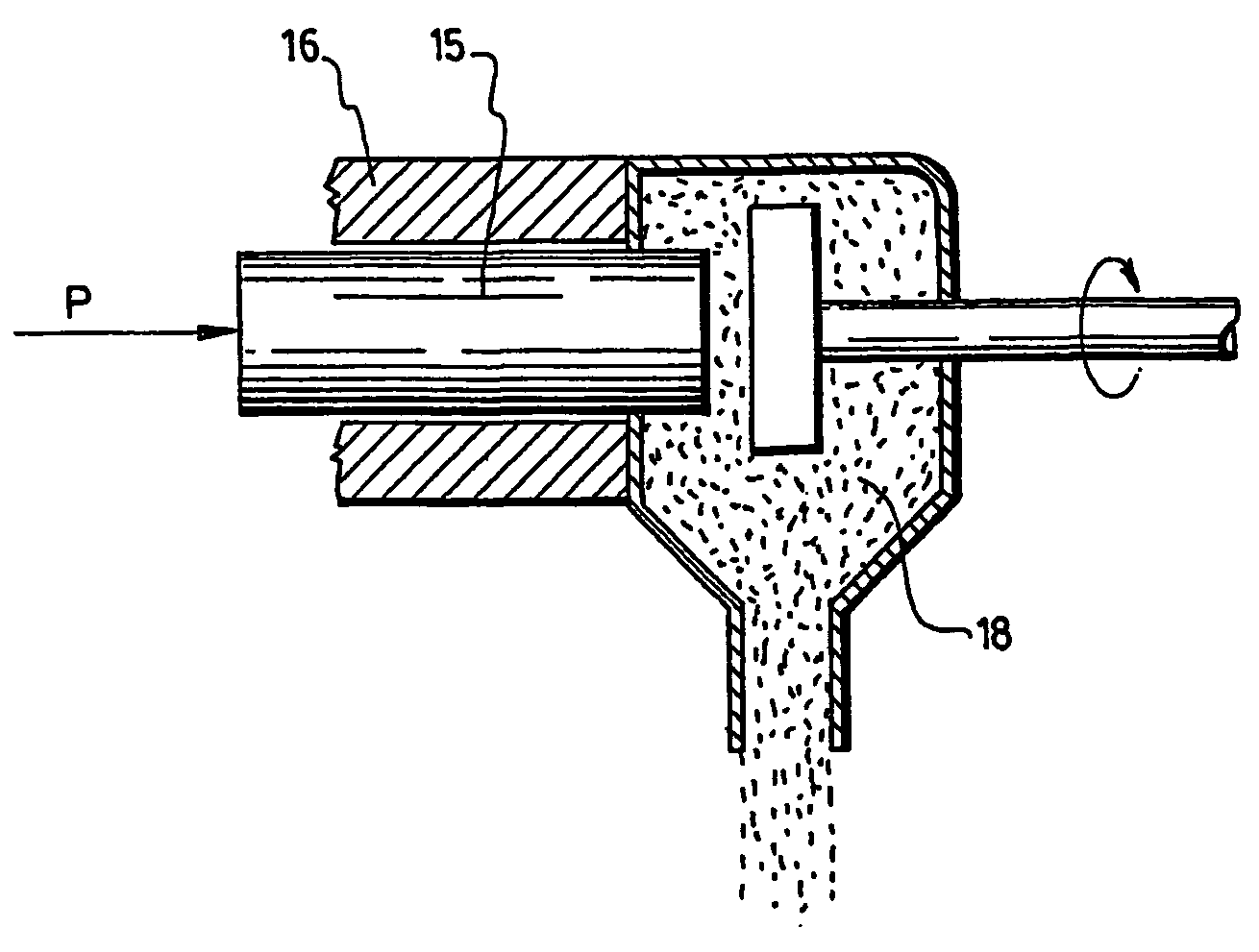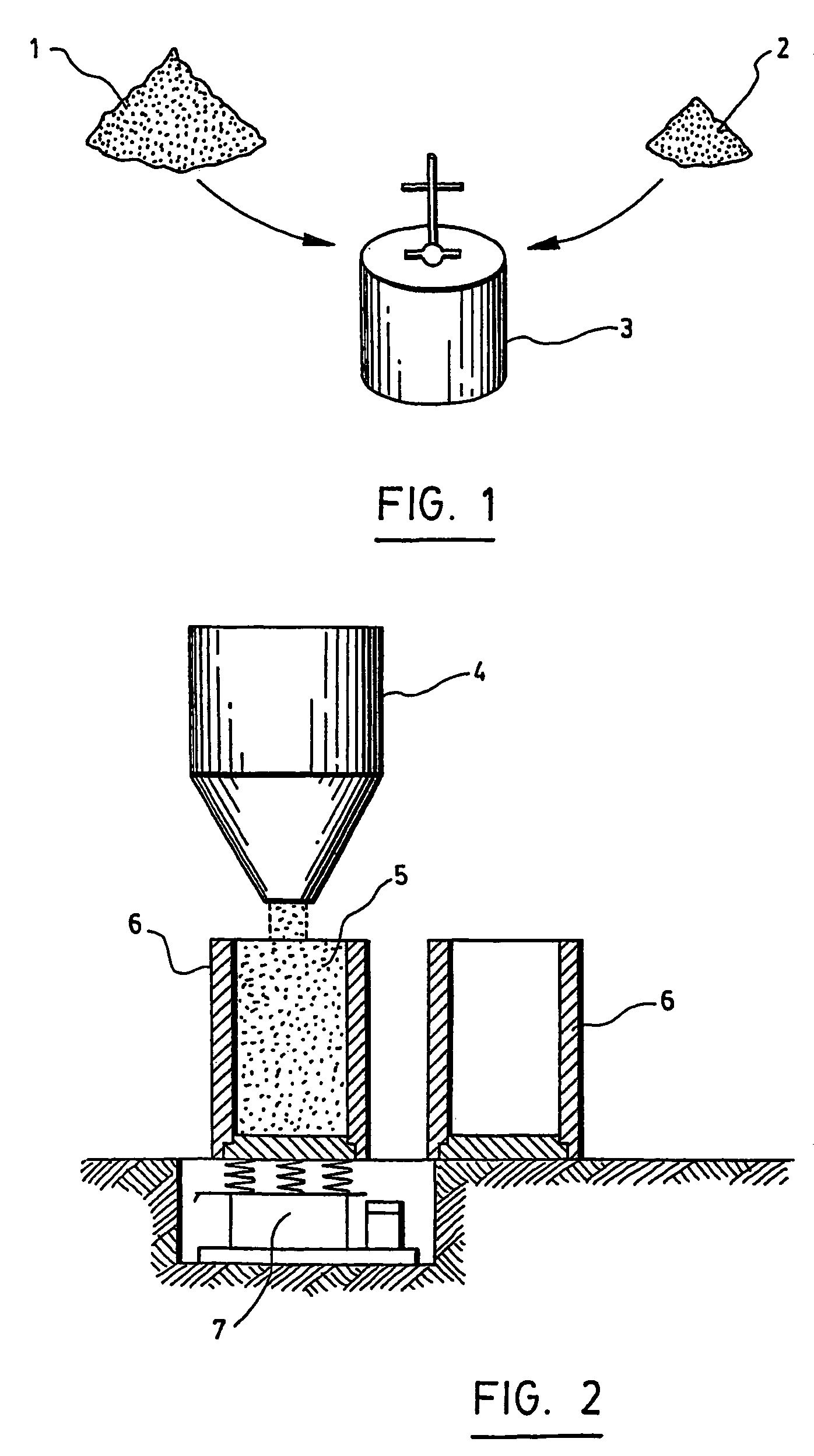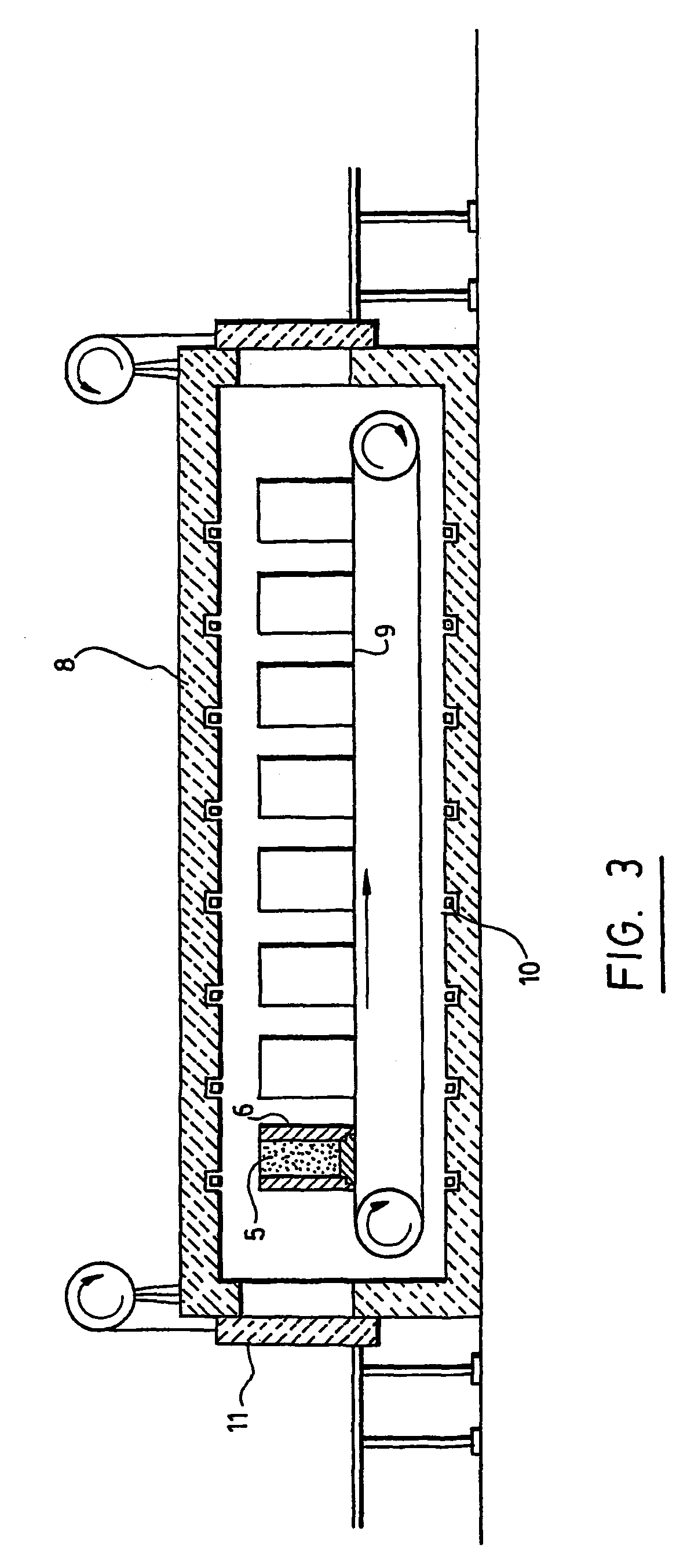Method for production of metal foam or metal-composite bodies with improved impact, thermal and sound absorption properties
a technology of metal foam and metal composite body, which is applied in the field of powder metallurgy, can solve the problems of limited possibility of semi-finished products production, low method output, and inability to heat up, and achieve high specific strength and rigidity
- Summary
- Abstract
- Description
- Claims
- Application Information
AI Technical Summary
Benefits of technology
Problems solved by technology
Method used
Image
Examples
example 1
[0082]The example of the realization of the method for production of dense foamable chips is as follows.
[0083]Al—Mg—Cu—Mn aluminum alloy powder (a liquidus temperature of the alloy is 640–645° C., a temperature of low-melting point eutectic is 505° C.) of 300 kg in weight was mixed with TiH2 foaming agent of 3.25 kg in weight (a decomposition temperature is 690° C. and filled in a split mould of 340 mm diameter, 800 mm in height with internal space of 290 mm in diameter. FIG. 8 shows a vertical cross section of the phase diagram of Al—Mg—Cu—Mn alloys. Hatched zone in this figure represents alloys used in the process. As can be appreciated, the average solidus temperature is 503° C. and the liquidus temperature is approximately 650° C. The powder mixture was compacted by vibration to obtain a density of 1.75–1.8 g / cm3. Weight of the mixture in each mould was from 97 up to 100 kg. The powder mixture was heated at a temperature of 510–515° C. to ensure liquid-phase sintering after cool...
example 2
[0087]The example of realization of the method for production of porous semi-finished pellets from the foamable chips is as follows:
[0088]Al—Zn—Cu—Mg aluminum alloys powder (a liquidus temperature of the alloy is 630–640° C., a temperature of low-melting point eutectic formation is 480° C. of 210 kg in weight was mixed with CaCO3 foaming agent of 12 kg in weight (a decomposition temperature is 720° C.) and filled in a split mould of 340 mm in diameter, 800 mm in height with internal space of 290 mm in diameter. FIG. 9 shows surfaces of crystallization (surfaces of liquidus) of the powder alloy Al—Zn—Cu—Mg containing Zn-4, 5%, Cu 3.5–4.5%, Mg-negligible, Al-balance. The alloys used are in the AL corner of the diagram (small hatched zone) and have a liquidus temperature of 650° C. Solidus of these alloys is in the interval of temperatures of 510–520° C. The powder mixture was compacted by vibration to obtain a density of 1.75–1.8 g / cm3. Weight of the mixture in each mould was from 97 ...
example 3
[0092]An example of the realization of the method for production of flat porous semi-finished products is as follows.
[0093]Al—Mg—Cu—Mn aluminum alloy powder (a liquidus temperature of the alloy is 640–645° C., a temperature of low-melting point eutectic is 505° C.) of 30 kg in weight was mixed with TiH2 foaming agent of 0.32 kg in weight and filled in 10 closed volume metal shells with length 500 mm, width 120 mm and thickness 10 mm. The powder mixture was compacted by vibration and a pass through the straightening machine to obtain a density of 1.8–2.0 g / cm3. Weight of the mixture in each shell was from 2.9 up to 3.2 kg. Then the powder mixture in a shell was heated at a high rate in a furnace to a temperature 515–550° C. and fed on a rolling mill on which 29 kg of 120×1000×5 mm blanks with metal facing and foamable core were rolled. The blanks were used for free foaming of sandwich panels. High-temperature heat treatment was carried out by heating of the sheet blanks from below on...
PUM
| Property | Measurement | Unit |
|---|---|---|
| grain sizes | aaaaa | aaaaa |
| weight | aaaaa | aaaaa |
| diameter | aaaaa | aaaaa |
Abstract
Description
Claims
Application Information
 Login to View More
Login to View More - R&D
- Intellectual Property
- Life Sciences
- Materials
- Tech Scout
- Unparalleled Data Quality
- Higher Quality Content
- 60% Fewer Hallucinations
Browse by: Latest US Patents, China's latest patents, Technical Efficacy Thesaurus, Application Domain, Technology Topic, Popular Technical Reports.
© 2025 PatSnap. All rights reserved.Legal|Privacy policy|Modern Slavery Act Transparency Statement|Sitemap|About US| Contact US: help@patsnap.com



